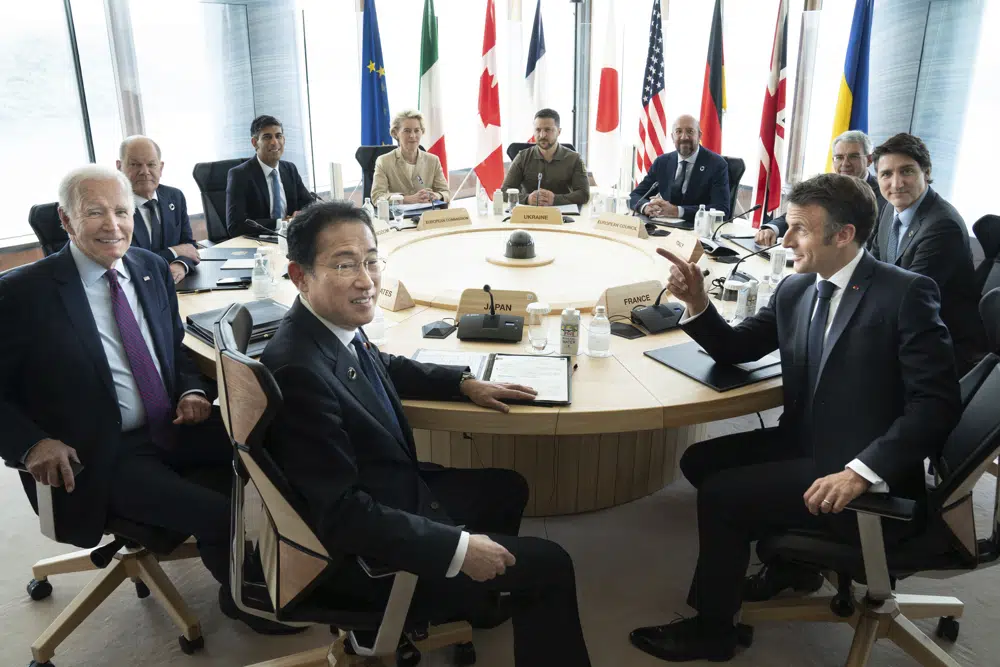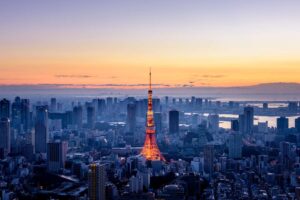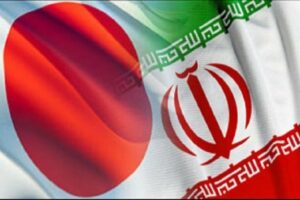G7 ends with Ukraine in focus as Zelenskyy meets world leaders

Hiroshima, The Gulf Observer: Ukrainian President Volodymyr Zelenskyy huddled with some of his biggest backers as the Group of Seven summit closed in Hiroshima on Sunday, building momentum for his country’s war effort even as Russia claimed a battlefield victory that was quickly disputed by Ukraine.
The Ukrainian leader’s in-person appearance in his trademark olive drab underscored the centrality of the war for the G7 bloc of rich democracies. It also stole much of the limelight from other priorities, including security challenges in Asia and outreach to the developing world, that the leaders focused on at the three-day gathering.
Hosting Japanese Prime Minister Fumio Kishida said the group was committed to “strong backing for Ukraine from every possible dimension.”
Zelenskyy held two major rounds of meetings Sunday, one with G7 leaders and a second with them and a host of invited guests including South Korea. He also spoke one-on-one with several leaders.
U.S. President Joe Biden announced new military aid worth $375 million for Ukraine, saying the U.S. would provide ammunition and armored vehicles. That pledge came after the U.S. agreed to allow training on American-made F-16 fighter jets, laying the groundwork for their eventual transfer to Ukraine.
“We have Ukraine’s back and we’re not going anywhere,” Biden said.
Even before Zelenskyy landed Saturday, the G7 nations had unveiled a slew of new sanctions and other measures meant to punish Moscow over its invasion that began in February last year.
While Ukraine dominated the summit, the leaders of Japan, the U.S., the United Kingdom, France, Germany, Canada and Italy, as well as the European Union, also aimed to address global worries over climate change, poverty, economic instability and nuclear proliferation.
And Biden sought to reassure world leaders that the U.S. would not default because of the debt limit standoff that has cast a large shadow over his trip.
Two U.S. allies — South Korea and Japan — furthered efforts to improve ties colored by lingering anger over issues linked to Japan’s brutal 1910-1945 colonization of the Korean Peninsula. Kishida and South Korean President Yoon Suk Yeol visited a memorial to Korean victims, many of them slave laborers, of the Aug. 6, 1945, atomic bombing.
Washington wants the two neighbors, both of which are liberal democracies and bulwarks of U.S. power in the region, to stand together on issues ranging from Russia to North Korea.
Biden, Yoon and Kishida met briefly as a group outside the summit venue in front of Hiroshima Bay. Biden invited the two leaders to visit Washington for a trilateral meeting and they accepted, said a U.S. official who briefed reporters on condition of anonymity.
In a meeting with Zelenskyy, Yoon promised to provide South Korean demining equipment and ambulances to Ukraine.
The G7 has vowed to intensify pressure on Russia, calling its assault on Ukraine “a threat to the whole world in breach of fundamental norms, rules and principles of the international community.”
The Russian Foreign Ministry on Sunday denounced the G7 as “fixated on comprehensive confrontation with Russia … The leaders of the G7 countries brought to their meeting the chief of the Kyiv regime, who is controlled by them, and ultimately turned the Hiroshima event into a propaganda show.”


